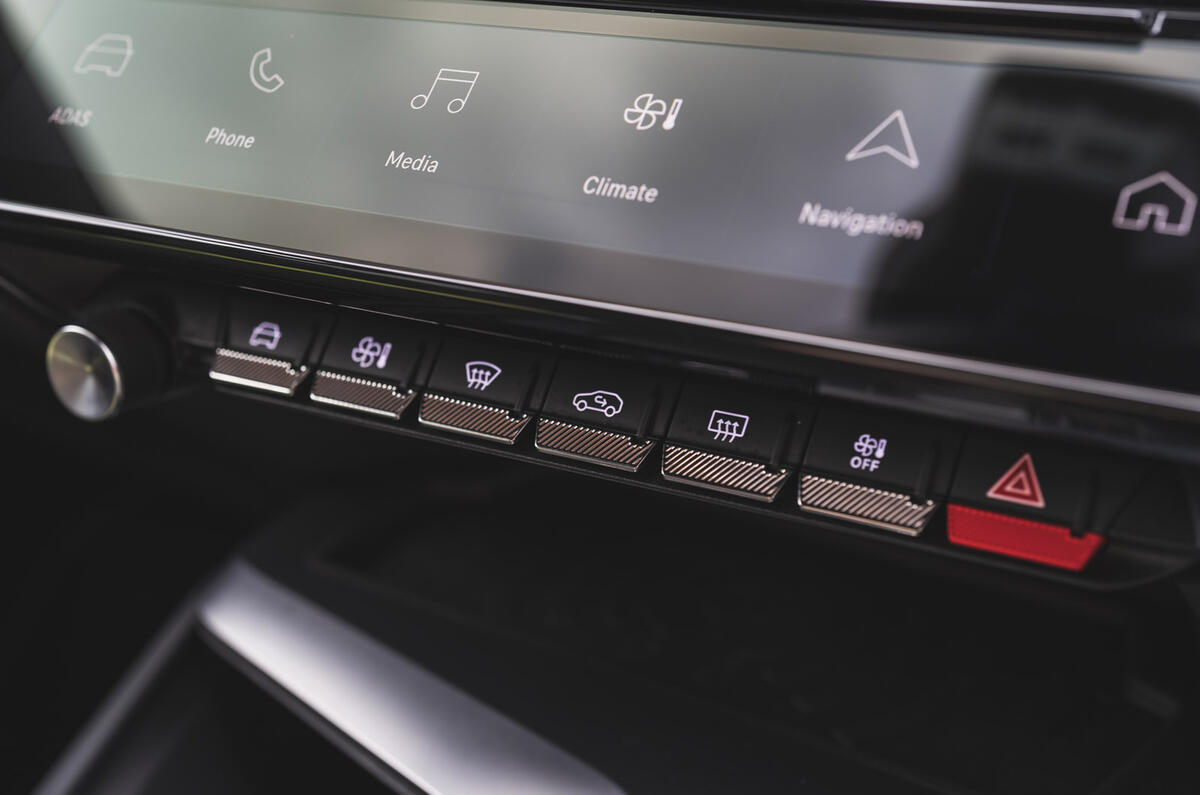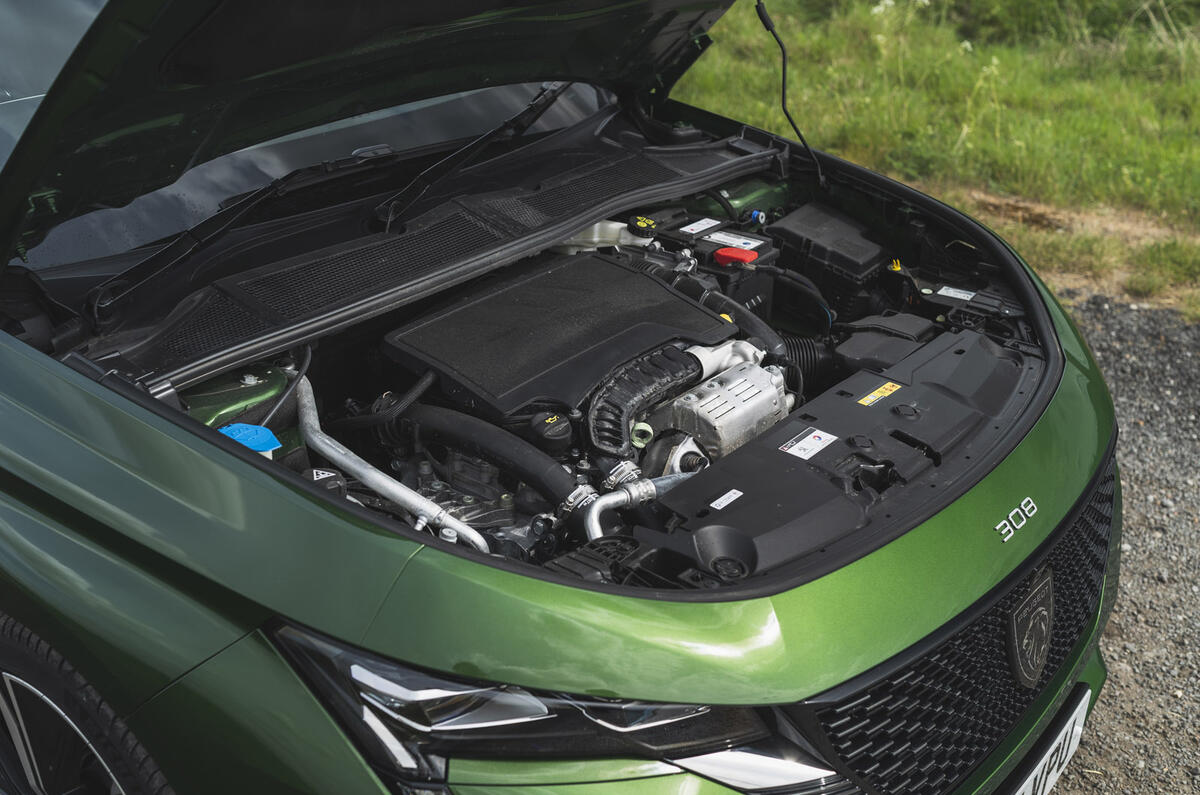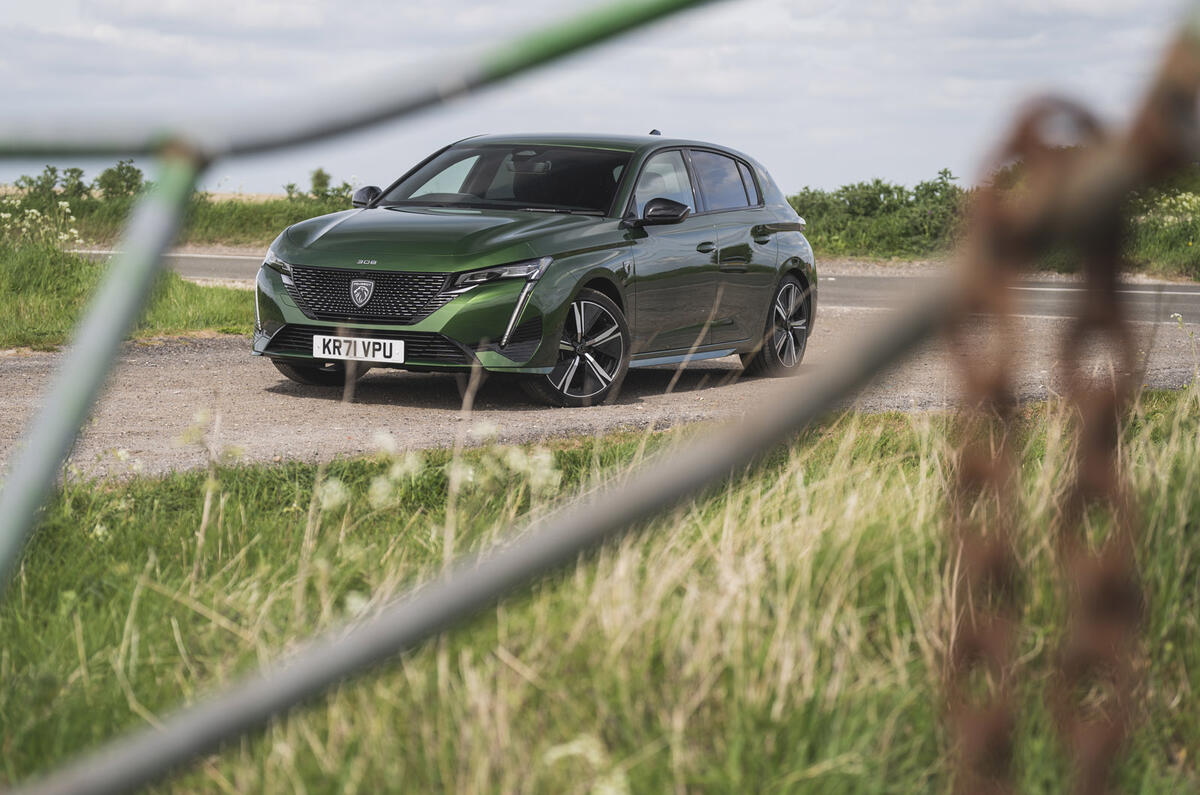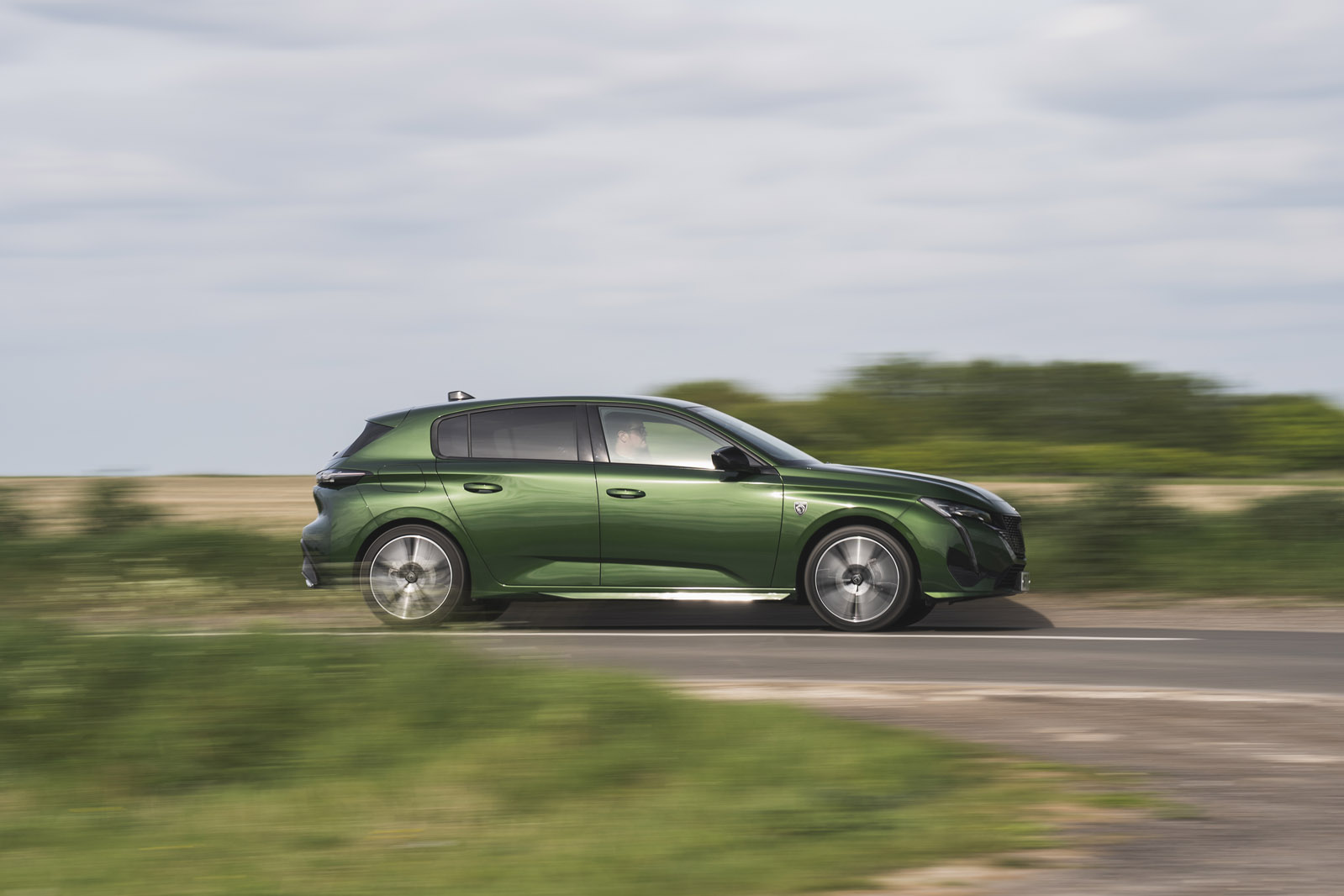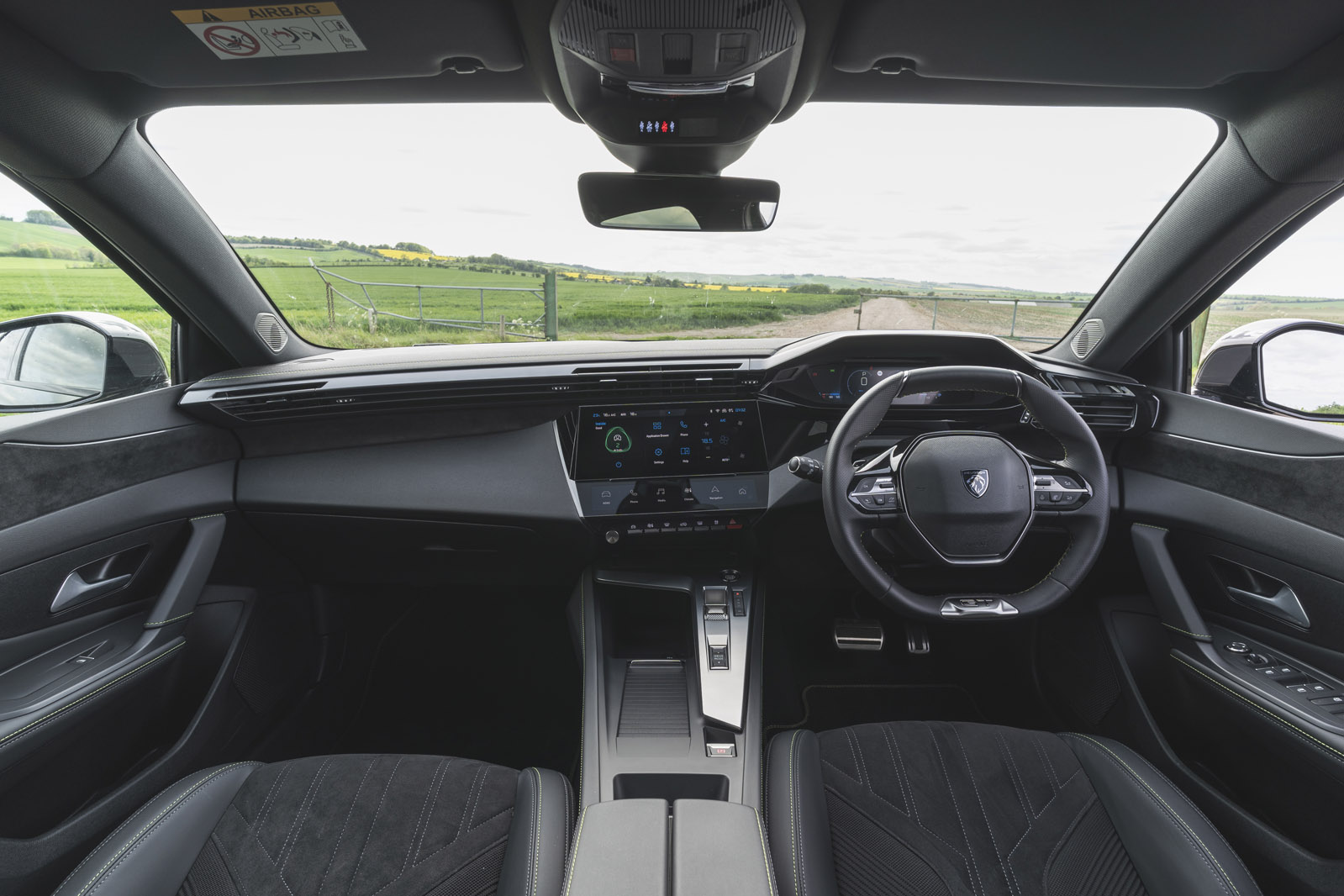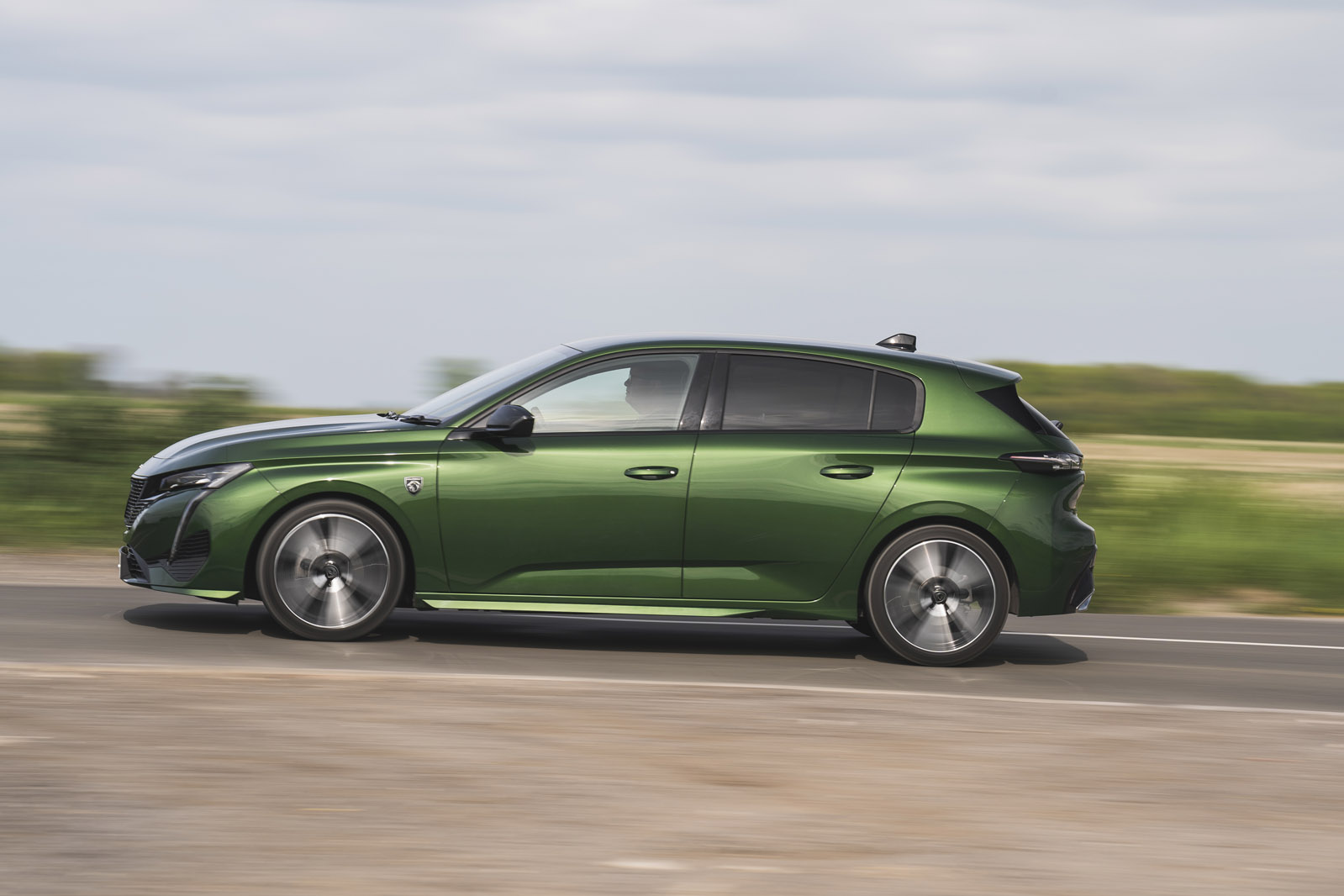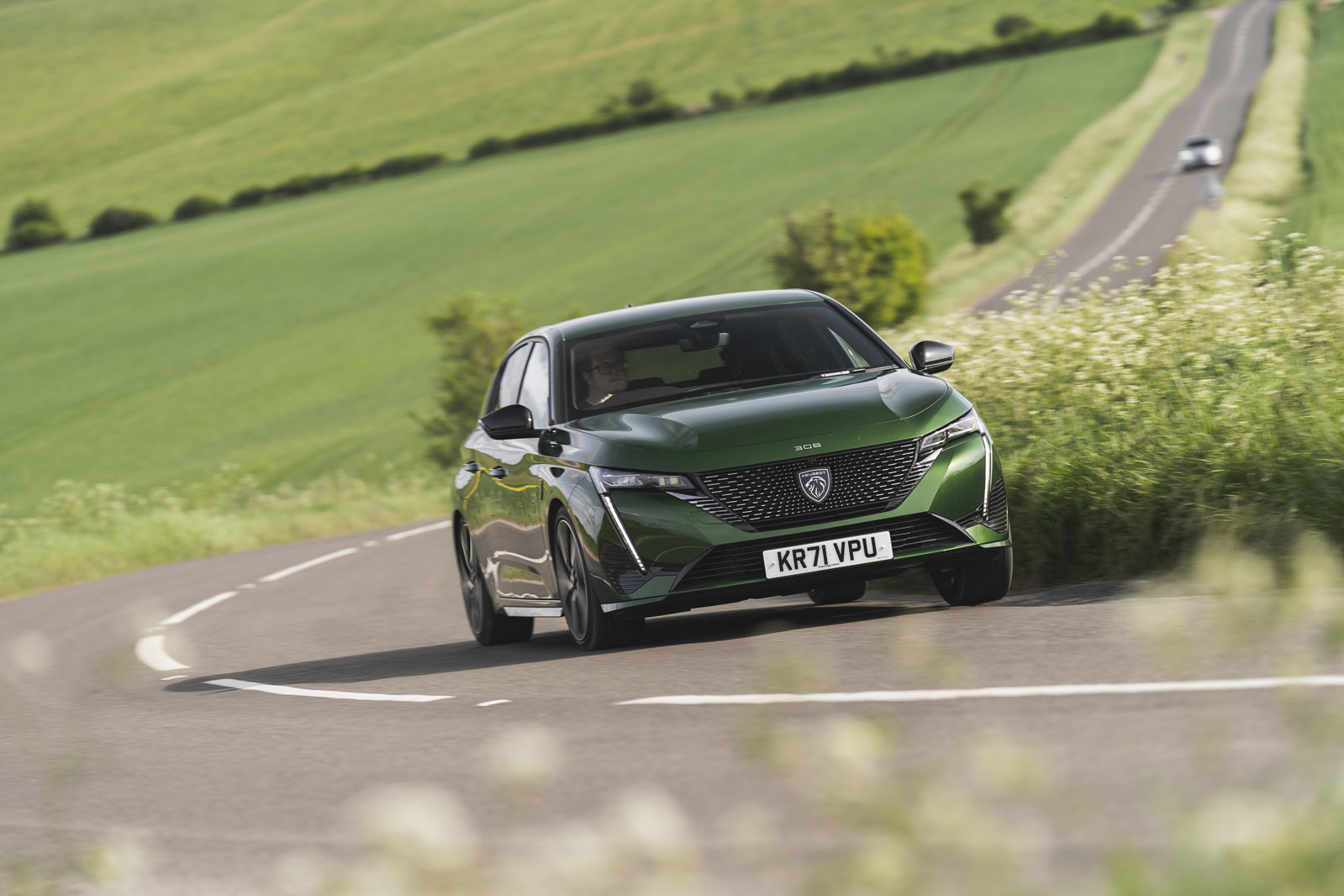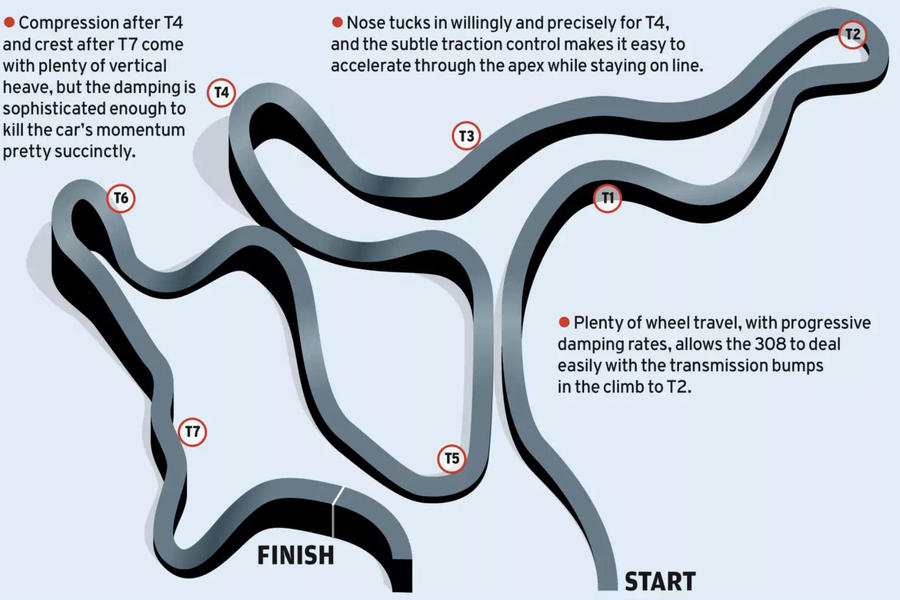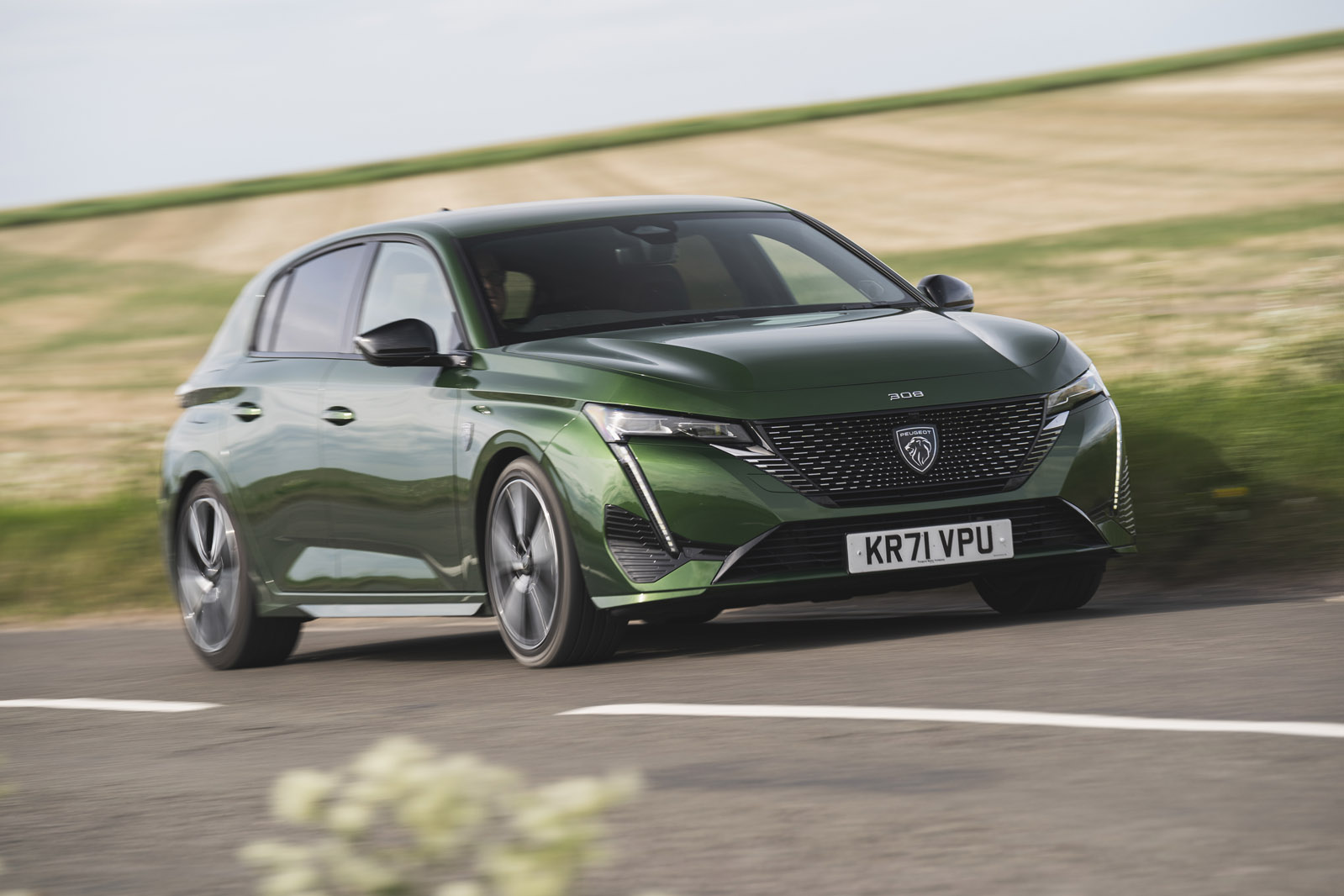Peugeot’s i-Cockpit control regime has been with us a decade this year, and is now present throughout the firm’s model range including this Peugeot 308. Consisting of a highish driving position, a lowish-set downsized steering wheel and a high-placed set of instruments, it was, and remains, Peugeot’s ‘us against the world’ attempt at redefining a normal control layout.
Much time-honoured convention has been sacrificed on this ergonomic altar over the years. When the last Peugeot 308 (2013-2021) came out in 2013, it did do so with speedometer and rev-counter clocks whose normal positions (revs on the left, speed on the right) had been switched around, and with the rev counter now graded in an anti-clockwise direction so as to be more readable in the new i-Cockpit era.That never really felt like intuitive thinking to us, but the orientation of instruments survives into the new 308, albeit on the car’s all-digital dashboard, which comes as standard.
Even after up to a decade of getting used to it, the balance of testers reported that they still found the 308’s layout unintuitive; that the car’s handling seemed to benefit little from being translated through a smaller-diameter steering wheel; and that they didn’t enjoy an unencumbered view of the instruments in any case.
Be that as it may, though, if Peugeot’s designers could have been talked out of their ergonomic coup, it would have surely happened by now. And elsewhere in the 308, notable gains have been made. The car’s cabin is now one of smart, boldly drawn geometric lines, moderately expensive-looking metallised trim finishes and appealing decorative textiles, and it represents a significant upgrade on perceived quality for a car once much more vulnerable to attack from above by the premium brands.
Now, the 308 definitely holds its own on ambient cabin appeal. It offers abundant oddment storage for the front seats also, thanks not least to Peugeot finally making the 308’s fuse box a part of its right-hand-drive conversion, meaning UK 308 owners get a full-size glove compartment.
The car’s front seats offer good support and reasonable comfort, although taller drivers might want a little more headrest adjustment range and lumbar support. Second-row accommodation remains quite lean by class standards – good enough for younger children but certainly not for taller adults, with both head room and knee room in pretty short supply.
Boot space is subject to quite a sizable loading lip, and maximum loading space (in the case of non-hybridised 308s) is 412 litres, which is less under the window line than the old 308 offered, but enough for folded pushchairs, for example.
Multimedia system
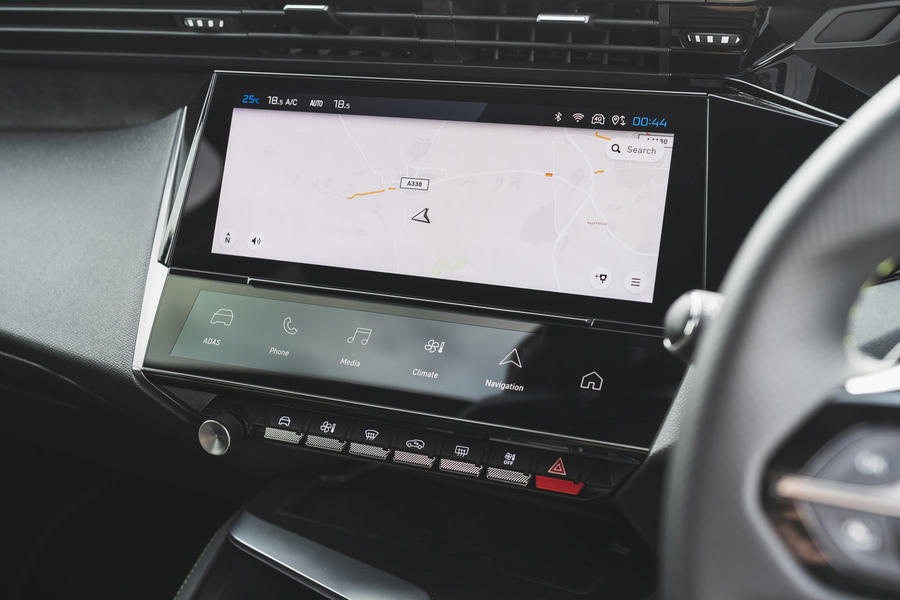
Peugeot’s latest-generation infotainment system, called i-Connect, is one that you have little choice but to interact with directly. There’s no joystick-style cursor control on the car’s steering wheel or the centre console, and while some voice control functionality helps, that means your screen gets grubby very quickly with all the poking and swiping that are necessary.
Usability is enhanced by the row of ‘i-toggle’ shortcuts sited underneath, but they do rob you of the space you might otherwise use to anchor your outstretched arm, and you can easily jump menus inadvertently if you forget they are there. Their functions are driver-definable via a long press on the relevant ‘button’ and a corresponding confirmation on the car’s app menu.
The system isn’t as responsive as some; it’s quite prescriptive about which functions can be accessed while you are driving; and it will warn you if you’ve been looking at it for too long, rather than at the road ahead. That might sound like a good safety feature, but a less distracting system overall would be a much better one.
















